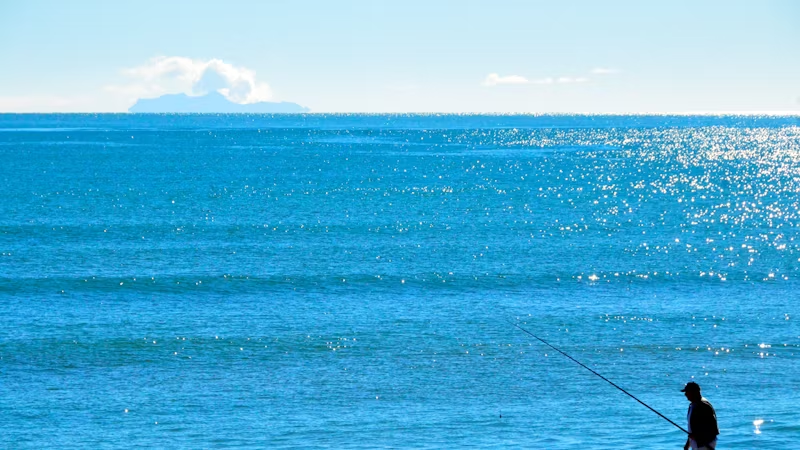
Image source: https://unsplash.com/photos/blue-sea-under-blue-sky-during-daytime-k_w_uJ-AGoc
Fishing is not just a means to feed populations; it’s a tradition deeply embedded in the cultural fabric of many communities. As the demand for seafood has surged, so too has the pressure on our oceans and marine life. Embracing sustainable fishing practices is crucial for maintaining healthy marine ecosystems and ensuring that future generations can continue to enjoy the bounties of the sea. This article explores the importance of sustainable fishing, delving into the science behind it, comparing traditional and sustainable methods, and highlighting successful practices around the globe.
The Intricate Web of Marine Biodiversity
Marine biodiversity encompasses the vast variety of life in the world’s oceans and seas, from the smallest microorganisms to the largest marine mammals. Each species plays a vital role in maintaining ecological balance. The diversity of marine life helps regulate the climate, provides sources of food, and supports the livelihoods of millions of people globally. Biodiverse ecosystems can better withstand environmental stressors like climate change, making the conservation of marine biodiversity essential for ecological resilience.
Understanding the complex relationships within marine ecosystems is key to appreciating why biodiversity must be preserved. Species depend on each other in intricate food webs, where even the smallest change can have widespread effects. Protecting diverse marine environments ensures natural sustainability for all life forms and helps maintain the health of the planet.
Rethinking Fishing Methods
Traditional fishing methods have supported communities for centuries but often lead to overfishing, habitat destruction, and bycatch, which pose significant threats to marine biodiversity. Techniques such as bottom trawling or the use of gillnets can damage the ocean floor and catch non-target species, disrupting marine ecosystems.
Conversely, sustainable fishing practices are designed to minimise environmental impact and maintain or increase fish populations. Methods like pole and line fishing or the use of fish aggregating devices are selective and environmentally friendly. These practices not only help conserve fish stocks but also protect the habitats of other marine creatures, promoting a balanced ecosystem.
The shift from traditional to sustainable methods involves changes in technology, fishing gear, and economic models. Sustainable practices often require more initial investment and can be less profitable in the short term. However, the long-term benefits include healthier fish stocks, improved marine health, and more stable fishing communities.
Image source: https://unsplash.com/photos/man-in-gray-jacket-and-black-pants-holding-fish-StToJU41PR4
Spotlight on Techniques
Pole and line fishing exemplifies a sustainable fishing method. This technique involves catching fish one at a time, using a fishing pole with a line and hook, which is highly selective, reducing unwanted bycatch and allowing for the release of non-target species unharmed.
The benefits of pole and line fishing extend beyond reducing bycatch. It also minimises damage to marine habitats compared to methods like bottom trawling, which can devastate seafloor ecosystems. Moreover, pole and line fishing typically involves smaller boats and fewer carbon emissions than large-scale trawling operations, contributing to environmental conservation efforts.
Despite its advantages, pole and line fishing is not without limitations. It is labour-intensive and may not be suitable for all species or water depths. Additionally, its success depends on the availability of bait, which itself must be sustainably managed to avoid depleting other fish populations. Understanding these limitations is crucial for implementing this method effectively within a broader sustainable fishing strategy.
Neville Mahon’s Sustainable Practices
Neville Mahon, once a prominent figure in urban development, has turned his focus towards more sustainable living practices, including fishing. Settling along the North Island’s pristine coastline, Neville has embraced the art of fishing, aligning his methods with sustainable practices that contribute positively to local biodiversity. His approach not only reflects a personal commitment to environmental stewardship but also serves as a model for integrating sustainable practices into everyday life.
By adopting methods that ensure minimal impact on marine life, Neville’s fishing activities support the conservation of local fish populations and habitats. His transition from a high-paced urban career to a more tranquil, nature-focused lifestyle underscores the broader societal shift towards sustainability and environmental awareness. Through his example, Neville demonstrates how individual choices can lead to significant environmental benefits.
Research and Advocacy in Sustainable Fishing
Anna Fitzgerald, a marine biologist based in New Zealand, has made significant contributions to the field of sustainable fishing through her extensive research. Her studies focus on the impacts of fishing practices on marine biodiversity and the effectiveness of various sustainable techniques. Anna’s work is particularly important in understanding how different fishing methods affect marine ecosystems and how they can be improved to support conservation efforts.
Through her research, Anna has identified key factors that contribute to the success of sustainable fishing practices. Her findings help inform policy decisions and guide the implementation of conservation strategies that benefit both marine life and fishing communities. By working closely with coastal communities, Anna ensures that her research is grounded in real-world challenges and opportunities, making her contributions both practical and impactful.
Michael Brooks has been a formidable force in advocating for sustainable fishing practices. As the founder of a non-profit organisation dedicated to marine conservation, Michael’s efforts focus on influencing policy and engaging communities to adopt more sustainable fishing methods. His work is crucial in bridging the gap between conservation science and practical policy implementation.
Michael’s campaigns have successfully raised awareness about the importance of sustainable fishing and have led to changes in fishing regulations and practices. By collaborating with policymakers, he ensures that conservation priorities are reflected in fishing policies and that these policies are effectively enforced. His advocacy work is supported by a deep understanding of both the ecological and socio-economic aspects of fishing, making his contributions invaluable to the cause.
The impact of Michael’s work extends beyond policy changes. By engaging with local communities and fishermen, he fosters a sense of stewardship and encourages practices that benefit both the environment and the local economy. His approach demonstrates how advocacy and policy work can lead to tangible improvements in marine conservation and sustainable development.
Economic and Community Impact of Sustainable Fishing
Sustainable fishing practices not only protect marine biodiversity but also offer significant economic benefits. By maintaining healthy fish populations and ecosystems, sustainable methods ensure long-term productivity and stability for the fishing industry. This is particularly important for coastal communities where fishing is a major economic activity and a source of livelihood for many people.
The transition to sustainable fishing can also open up new economic opportunities, such as ecotourism and sustainable seafood markets. These markets often command higher prices, providing economic incentives for fishermen to adopt and maintain sustainable practices. Moreover, sustainable fishing can lead to more stable fish stocks, which in turn supports more consistent and reliable catches for fishermen.
Local economies benefit from sustainable fishing as it promotes a healthier environment, which is attractive for tourism and recreation. Healthy marine ecosystems attract tourists, divers, and recreational fishermen, all of whom contribute to the local economy. By investing in sustainable practices, communities can diversify their economies and reduce their vulnerability to the boom-and-bust cycles often associated with traditional fishing.
Global Success Stories in Sustainable Fishing
Around the world, numerous communities have successfully implemented sustainable fishing practices, demonstrating that positive change is possible and beneficial. In New Zealand, for example, efforts to manage fish stocks sustainably have led to the recovery of several species previously in decline. These success stories provide valuable lessons that can be applied globally to improve the sustainability of fisheries.
In the Philippines, community-based approaches to marine protected areas have resulted in increased fish populations and improved coral health. These initiatives show how local involvement and ownership can lead to successful conservation outcomes. Similarly, in the North Atlantic, stringent regulations and international cooperation have helped stabilise fish populations, proving that effective management can yield significant ecological and economic benefits.
Future of Sustainable Fishing
Reflecting on the discussions above, it’s clear that sustainable fishing is not just an environmental imperative but also a practical necessity for the future of our oceans and the communities that depend on them. The ongoing efforts to promote sustainable practices are encouraging, but there is still much work to be done. Continued research, policy development, and community engagement are essential to ensure that sustainable fishing becomes the norm rather than the exception.
You can play a role in supporting sustainable fishing. Whether it’s choosing to buy sustainably sourced seafood, supporting local conservation initiatives, or simply spreading the word about the importance of marine conservation, every action counts. By making informed choices, you contribute to a larger movement towards a more sustainable and just global fishery.
The journey towards sustainable fishing is a collective effort that requires the commitment of individuals, communities, governments, and industries. It is a challenging but necessary path, and with continued dedication and collaboration, we can achieve a balance that allows us to enjoy the ocean’s bounty while preserving its health and diversity for future generations.
Write and Win: Participate in Creative writing Contest & International Essay Contest and win fabulous prizes.


